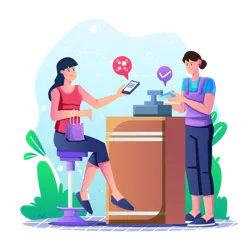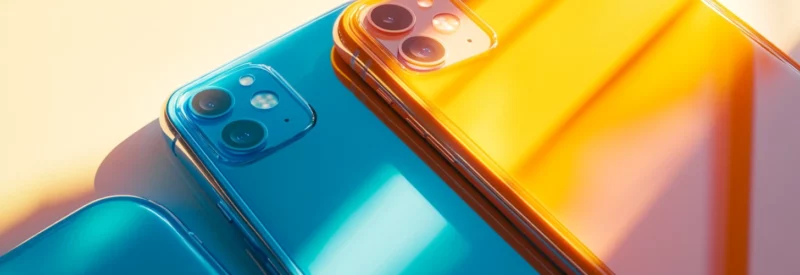While Cash App payment processing is generally simple and streamlined, issues occasionally arise, such as your Cash App payment pending. If a Cash App payment fails, users generally try processing it again. However, with a “Cash App payment pending” notice, are the funds in the receiver’s account, the sender’s account, or somewhere else altogether?
Whether you urgently need to pay for stock to be released or a customer needs to pay to reserve limited items, a delayed Cash App for Business payment can have serious consequences. While it’s impossible to eliminate such scenarios, you can minimize and learn to troubleshoot problems quickly to streamline operations.
In this guide, we examine the possible causes of pending Cash for Business notices and offer tips on how to resolve issues quickly and prevent them from occurring again.
Common Reasons for Pending Payments on Cash App

Delayed transactions can cause long-term complications for businesses and consumers. They can lead to serious cash flow disruptions, complicating accounting processes, budgeting, and financial planning. Pending Cash for Business transfers obscures the clarity of financial data, which can impact decision-making. They can also strain customer-supplier relations and potentially disrupt your supply chain.
In addition, the longer a transaction is pending, the more errors may go unnoticed or fraudulent activity undetected. Here are some of the most common reasons why you or your customers might receive a Cash App payment pending notice.

Account Problems Flagged by Cash App
Cash App security concerns are a common reason for holding or delaying payments. The platform routinely monitors user accounts for potential security issues. Cash App delays payments when it detects suspicious or unusual activity on an account to protect its users from fraud and scams.
Unusual account activity can also trigger payment delays. This may include making large payments to unfamiliar recipients—especially if the user hasn’t done this before.
Additionally, Cash App does not permit the use of its service for high-risk trades. According to the Cash for Business Terms and Conditions, this includes (but is not limited to):
- Credit counseling agencies
- Identity theft protection services
- Direct marketing or subscription offers
- Infomercial sales
- Internet or telephone order pharmacies
- Inbound or outbound telemarketers
- Prepaid phone services
- Betting
- Insurance or other financial services
- Adult entertainment–oriented products or services
- Sales of firearms and related merchandise
- Internet/telephone orders of age-restricted products such as tobacco and alcohol
If Cash App assumes you are involved in a high-risk trade, it will delay or cancel payments.[1]Cash App. “Cash for Business Payment Terms.” Accessed September 18, 2024.
To prevent payment delays:
- Verify your Cash App for Business and personal accounts (this will also increase your transaction limits)
- Only link your Cash for Business account to a debit or credit card that is in your or your business’ name
- Only transact with reputable businesses
- Use your Cash for Business account often to develop a healthy transaction history

Issues with Account Verification
Cash App requires identity verification for all senders and receivers and additional business verification for business accounts. Users with incomplete verification may experience limited functionality and risk delayed payments or account suspensions.
Cash App generally requires your legal name, date of birth, and the last four digits of your Social Security number (SSN) to confirm your account. In certain cases, Cash App may ask for your full SSN, government photo ID, address, or income verification. Business account holders may also need to provide their company’s registration, address, and tax details.
To verify your Cash App account, go to the profile icon on the top right of the app home screen. Select Security & Privacy and choose the Identity Verification option. If Cash App has all the necessary info, it will display “Verified.” If not, tap on Verify and follow the instructions to complete the identity or business verification process. To ensure data privacy, Cash App encrypts all data before sending it to its secure servers.

Cash App System Maintenance
From time to time, Cash App may experience internal system issues such as server downtime or application bugs. You can check the Cash App status page to determine if there is a problem on Cash App’s side.[2]Cash App. “Good to Go.” Accessed September 18, 2024. Server downtime is usually not prolonged since Cash App knows it will negatively affect its reputation. In this case, there is nothing you can do except wait until the platform resolves the issue.
Cash App is constantly updating its software with new features and bug fixes. To protect your Cash App account from potential hacks and ensure your pending transfers go through, make sure you have the latest version of the app. For iPhone users, check the App Store; for Android users, check Google Play. If a new version is available, download it and then click “Open.” To avoid this issue in the future, turn on automatic updates on your device.

Poor Internet or WiFi Connection
To ensure successful transfers, make sure you have a stable and secure internet or WiFi connection. Avoid transferring funds through public WiFi networks, as they can be slow and vulnerable to fraud.
If your signal is weak, Cash App may not process the payment. You might see a Cash App pending payment notice or an error message with a red “X” stating “failed transfer.” Once you have a better signal, check again to see if the payment went through. If not, try again.

Not Enough Funds in Your Account
If your customer gets a Cash App payment pending notice when paying you, they may want to check that the funds in their account are sufficient to cover the transaction. The customer should transfer funds from their linked bank account to their Cash App account before completing the payment if they are short.
Users with an unverified personal account have a balance limit of $1,000. Once verified, there is no limit to how much they can keep in their Cash App account. Automatic payments from the linked bank account can be enabled to prevent the need to continuously add money. However, if the linked bank account funds are low, Cash App won’t approve the payment. Similarly, you won’t be able to make payments from a business account if your account balance is insufficient.
How Long Does a Pending Payment Take on Cash App?
Cash App payments are generally instant. If your or your client’s payment shows as pending, head to your activity feed and take the action steps outlined there to complete it. If the transaction is not processed within 24 hours, Cash App automatically cancels it and marks it as “failed.” Check the payment status in your activity feed at any time.
If the status reads “Cash App payment pending will deposit shortly,” the transaction is in the process of acceptance. Once accepted, it will change from pending to completed status. In some cases, it can take up to three days.
Guidelines for Resolving Pending Cash App Payments

Ensuring that your account is verified, that you have sufficient funds, and that you have a solid connection when using Cash App can minimize problems, even before starting a transaction. However, some things to be aware of at the actual time of payment can slow down the process.
Cash for Business users can set their account to manual payment approval. This means that to receive a payment, they need to manually accept and approve it. If you are receiving a Cash App pending notice, you may want to notify the recipient that you have sent them a payment. They might need to approve acceptance before it is reflected in their account. The sooner they do this, the better. Also, check that both sender and recipient accounts are activated and all the payment details are correct.
If you have sent a customer an invoice or a payment request, they need to approve the request to finalize the transaction. If it is the first time your client is paying via Cash App, show them how to streamline the process for everyone’s convenience.

Accepting a Pending Payment on Cash App
If you are the recipient, follow these steps to accept a payment:
- Open the app and select the notification icon in the top left
- Select the relevant pending payment
- Tap “Accept”
Once you have done this, the payment should move from pending to completed status. If you do not accept the payment within 24–48 hours, the funds will be returned to the sender’s account.

Canceling a Pending Transaction on Cash App
If an urgent payment is pending and you cannot wait, you may decide to cancel it and use another payment method instead. To cancel a pending payment:
- Open the app and select the clock icon at the bottom right
- Tap on the pending payment
- Click “Cancel Payment”
Once canceled, the funds will appear back in the sender’s Cash App account.

Reaching Out to Cash App Customer Support
There are various ways to contact Cash App customer support. The app allows you to start a chat, which is the safest and most convenient way for most people to get assistance.
Alternatively, you can call the customer support center on weekdays between 9 AM and 7 PM EST. Only use the official support contact number if you receive a text message or email requesting that you call another number regarding your account; be wary that it could be a scam. In addition, Cash App support service agents will never ask you for your password, PIN, sign-on code, full SSN, or full card number.
Although you can connect with Cash App via its social media channels, this is often a less safe option, especially when dealing with confidential or sensitive information.
Signs That Cash for Business May Not Be Ideal for You
Choosing the right payment app for your business is key to your success. If a payment solution doesn’t align with your business needs, you risk incurring unnecessary expenses and losing customers. Consider the following criteria and how Cash for Business matches up to each:
- Monthly cost and transaction fees. Cash App does not charge a monthly fee but has higher transaction fees than some of its competitors.
- Payment methods. Cash for Business supports all major debit and credit cards, as well as offering QR codes and unique URL links.
- Holding time. Cash for Business payments are generally instant but can take up to three days in some cases.
- User requirements. Cash for Business requires that business users issue receipts for transactions over $15 and request customer signatures for transactions over $25. The platform prohibits high-risk businesses or trades from using the service at all.
- Additional costs. Cash for Business does not charge business account users for instant transfers. Chargebacks, however, do incur a high fee.
- Multiple currency support. Cash for Business does not support international payments.
- Customer service support. Cash App telephone customer support is only available on weekdays.
- Integrations. Cash for Business integrates with selected software to streamline accounting, payroll, CRM, and data tracking.
- High-risk industries aren’t accepted. Cash App does not accept high-risk businesses as part of its operating policy. So, if your business falls into a riskier sector, Cash App isn’t for you.
Determining the Best Payment Solution for Your Business
Customers want convenience and hassle-free service. Some won’t hesitate to change who they buy from if their needs aren’t met. To stay relevant in a fast-paced and highly competitive business landscape, you need an effortless online payment solution. We can help!
At PaymentCloud, we prioritize finding the payment solution that makes the most sense for your business based on a number of different factors. Get in touch for one-on-one support to integrate a payment service that puts your business growth first.
Level up your online business.
Accepting payments has never been easier!
Transparent
FAQs
Is it secure to transmit funds via Cash App with a pending payment?
Yes, sending money through Cash App is secure, even when a payment is pending. Cash App utilizes advanced security features to safeguard your financial data, such as encryption, strict access control, and fraud detection algorithms.
Are there any alternative payment methods or apps if Cash for Business is not suitable for me?
Numerous mobile payment platforms are available with varying features to suit small-to-medium-sized businesses. However, none of these platforms—including Cash App, Venmo, Paypal, and Zelle—permit users in high-risk trades to use their services. In addition, payment providers will delay and withhold payments or suspend user accounts if they notice any suspicious activity.
PaymentCloud will specifically seek out payment solutions that support high-risk businesses. PaymentCloud also does not withhold payments or suspend user accounts and supports all types of payments, from eCommerce and cryptocurrency to credit cards and QR codes.




